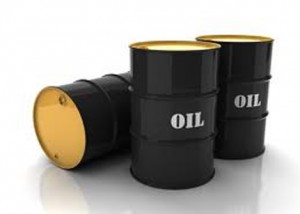Livelihoods of fishermen sacrificed on the altar of crude oil
 The discovery of crude oil in commercial quantities in Ghana in 2007, and subsequent production of the commodity in 2010, initially brought a lot of joy and high expectations from Ghanaians, especially the residents of the Western Region.
The discovery of crude oil in commercial quantities in Ghana in 2007, and subsequent production of the commodity in 2010, initially brought a lot of joy and high expectations from Ghanaians, especially the residents of the Western Region.
The people had high hopes of employment opportunities, potential reduction in prices of petroleum products in the country, reduced poverty levels, increased access to healthcare, and an enhancement of the general welfare of the people.
Fishermen along the six coastal districts of the Region stretching from Shama, Sekondi-Takoradi, Ahanta West, Nzema East, Ellembelle and Jomoro districts were among people with high aspirations.
However, five years down the lane, the expectations of the people in these predominantly fishing communities have been dashed as most fishermen who spoke to the GNA expressed their unhappiness with the impact of oil production, saying their livelihoods had been snapped from their hands.
Nana Kwesi Acheampong, a fisherman at Lower Dixcove told journalists that the location of the Floating, Production, Storage and Offloading (FPSO) Vessel on the sea had restricted fishermen from fishing near the vessel because of the danger posed to the oil installations and to the fishermen themselves.
He stated that the light around the FPSO attracted fishes to the facility any time they cast their nets. Also, the sea waves moved the nets towards the facility and naval personnel patrolling the oil installations seized their nets.
Moreover, the restriction had prevented them from venturing into areas that are rich with fish stock, and this has restricted their movements and woefully affected fish catch.
”We cannot pay our children’s school fees and our wives have divorced us because we cannot provide them housekeeping money,” Acheampong lamented.
Mr. Benjamin Kwofie, the Health and Safety Officer of the Petroleum Commission, emphasized that 500 metres from the oil rig is a “no go area” because fishing activities posed a danger to the rig since the fishing nets could entangle the oil installations under the seabed.
He said the Commission had recorded 320 incursions per month in recent times and therefore warned fisher folks to exercise restraint before disaster struck.
An independent investigation conducted by this reporter revealed that the premix fuel which the government had subsidized for fisher folks is fraught with a lot of corruption. Some premix committee members who are authorized to sell the commodity deliberately hoard it and sell to fishermen in other fishing communities, thus leading to temporary shortage of the product in the designated landing beach site.
Some residents in the coastal communities have experienced high tidal waves which have been destroying structures and buildings along the coastline and forced its way to the communities, thus making the people live in constant fear.
The situation has been attributed to climate change due to global warming therefore resulting in the rise of the sea.
Nana Acheampong from Lower Dixcove claimed that the high tidal waves claimed one or two lives every year because it capsized boats and canoes that tried to berth at the beach, while those embarking on fishing expeditions also had their canoes capsized.
He also alleged that some fishermen in other fishing communities still used light for fishing which was having detrimental effects on fish stock. However the security agencies have not taken a firm decision to stop the illegal practice.
Mr. Kwesi Adolf Johnson, a Community Relations Officer of Friends of the Nation, a non-governmental organization interested in the usage of natural resources and environment, said there was an urgent need to create fish reserve areas where oil exploration and production would be prohibited so that fishermen could undertake fishing expeditions there.
Nana Kweku Assafuah, a spokesperson of the Chief Fisherman of Lower Dixcove, claimed supply vessels had been crashing their canoes and destroying their fishing gears and equipment without any compensation.
On the back of the oil discovery, Ghana went to the International Monetary Fund and the World Bank to borrow money for development projects with 10.17 per cent interest rate. How much of the funds borrowed from those institutions had been spent on providing alternative livelihood programmes in order to improve the lives of fisher-folks and their dependents?
Currently, the country is spending one-third of its annual budget to service debts it borrowed from the Bretton Woods Institutions, thus leaving little for developmental projects and other social interventions.
The situation could be attributed to the fall in the market prices of crude oil and other commodities on the world market. Against this backdrop, the country is not getting sufficient funds from the sale of its raw materials.
So if one may ask: “What contingency measures did the managers of the economy put in place to cater for such economic downturn? Are we becoming a nation that does not have any contingency plan, and therefore, put all our eggs in one basket?
Although there are some physical infrastructure such as roads, health facilities, sea defence walls and school blocks that the government has undertaken in the Region, what about social interventions that have direct bearing on the livelihoods of the fisher folks?
Madam Joana Koomson, a government appointee assembly member, indicated that the concerns of fishermen have been neglected, despite constant reminders to the authorities to support fishermen.
It is about time the managers of the economy put in place pragmatic measures to resource the fisher folks whose sources of income have been snatched from them before they start agitating because “the devil finds work for idle hands”.
By Godwill Arthur-Mensah
Source: GNA
